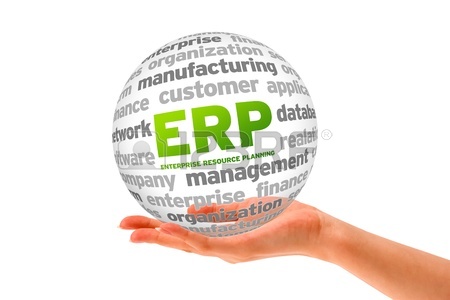Choosing the absolute best technology and software to utilize within your manufacturing operation is a common obstacle that many manufacturers come across. This is where Enterprise Resource Planning software comes into play, simply because it can easily manage/oversee your production and ensure that production is being carried out as planned.
 Enterprise Resource Planning (ERP) has become a must for modern manufacturers in order to keep up with the competition and ensure that production is efficient and on-time. Before implementing ERP software, it is important to understand the advantages and disadvantages of the software. Without further adieu, here are the advantages and disadvantages of utilizing Enterprise Resource Planning (ERP) software within your manufacturing operation.
Enterprise Resource Planning (ERP) has become a must for modern manufacturers in order to keep up with the competition and ensure that production is efficient and on-time. Before implementing ERP software, it is important to understand the advantages and disadvantages of the software. Without further adieu, here are the advantages and disadvantages of utilizing Enterprise Resource Planning (ERP) software within your manufacturing operation.
Advantages of Enterprise Resource Planning (ERP)
With ERP software, there are many benefits that can completely enhance your production with ease. These advantages include the following:
- Focus on IT Costs - While ERP is a substantial investment, it can actually unify IT costs and boost efficiency. This eradicates the need for purchasing various systems that are in need of a dedicated staff, support teams, licenses, and ultimately enables you to focus your costs into one ERP software. It is almost important to note that if you purchase one collective ERP software instead of various softwares, then this can enable you to save your IT costs overall. Utilizing a single system also eradicates/reduces training requirements because of the need to only learn one system rather than a number of them.
- Complete Visibility - Visibility is key within a manufacturing operation and is by far one of the biggest advantages to utilizing ERP software. ERP enables you to access every important component within your manufacturing operation and ultimately make decisions on how to conduct production. This availability of information is extremely important for operations/plant managers that oversee production.
- Efficiency Enhancement - As mentioned previously and along with IT costs, ERP reduces time and effort needed by your workforce to carry out activities. A properly implemented ERP system can reduce or eliminate repetitive manual processes which frees up team members to direct their focus on more important tasks. Efficiency enhancement is another important component within ERP software and enables production facilities to take production to then next level.
Disadvantages of Enterprise Resource Planning (ERP)
The disadvantages of ERP software include the following:
- Software Cost - Cost of the software can be exceedingly high and you could end up spending up to five figures for a single license. This definitely is one of the main disadvantages, especially to smaller manufacturers that are more on a fixed budget. The upfront cost of the software alone can be prohibitively high, especially for small-to-medium sized businesses. SMBs can avoid the upfront costs with a cloud solution, which are typically paid on a month to month basis. Overall, the cost of the software is by far one of the most important factors to consider before purchasing the software.
- Complexity - ERP software is by no means simple. With all of the capabilities that are within the software, it also means that the software can be difficult to understand and utilize. It is common for companies to invest into an ERP software but then fail to properly plan for its implementation. It is important to have it implemented correctly and understand the software entirely before using it.
- Implementation Cost and Maintenance - The software alone is a substantial investment and the implementation process cost can cost a rather large amount as well. Businesses and manufacturers need to account for the cost of manpower and time necessary for successful deployment. This may call for additional IT staff, ERP consultants, and software training specialist. This component is extremely important to consider when implementing ERP software.
A software that can be easily integrated with an enterprise resource planning software includes PlanetTogether’s Advanced Planning and Scheduling software. Advanced Planning and Scheduling Software (APS) fills in the gaps where ERP lacks and takes your production to the next level in terms of efficiency and optimization. APS has become a necessity for manufacturers around the globe and has led to drastic profit increase, waste reduction, and more.
Advanced Planning and Scheduling Software (APS)
Advanced Planning and Scheduling (APS) software has become a must for modern-day manufacturing operations due to customer demand for increased product mix and fast delivery combined with downward cost pressures. APS can be quickly integrated with a ERP/MRP software to fill gaps where these system lack planning and scheduling flexibility and accuracy. Advanced Planning and Scheduling (APS) helps planners save time while providing greater agility in updating ever-changing priorities, production schedules, and inventory plans.
- Create optimized schedules balancing production efficiency and delivery performance
- Maximize output on bottleneck resources to increase revenue
- Synchronize supply with demand to reduce inventories
- Provide company-wide visibility to capacity
- Enable scenario data-driven decision making
Implementation of Advanced Planning and Scheduling (APS) software will take your manufacturing operations to the next level of production efficiency, taking advantage of the operational data you already have in your ERP.
Related New Features Video
APS Resources
Topics: ERP System




















LEAVE A COMMENT